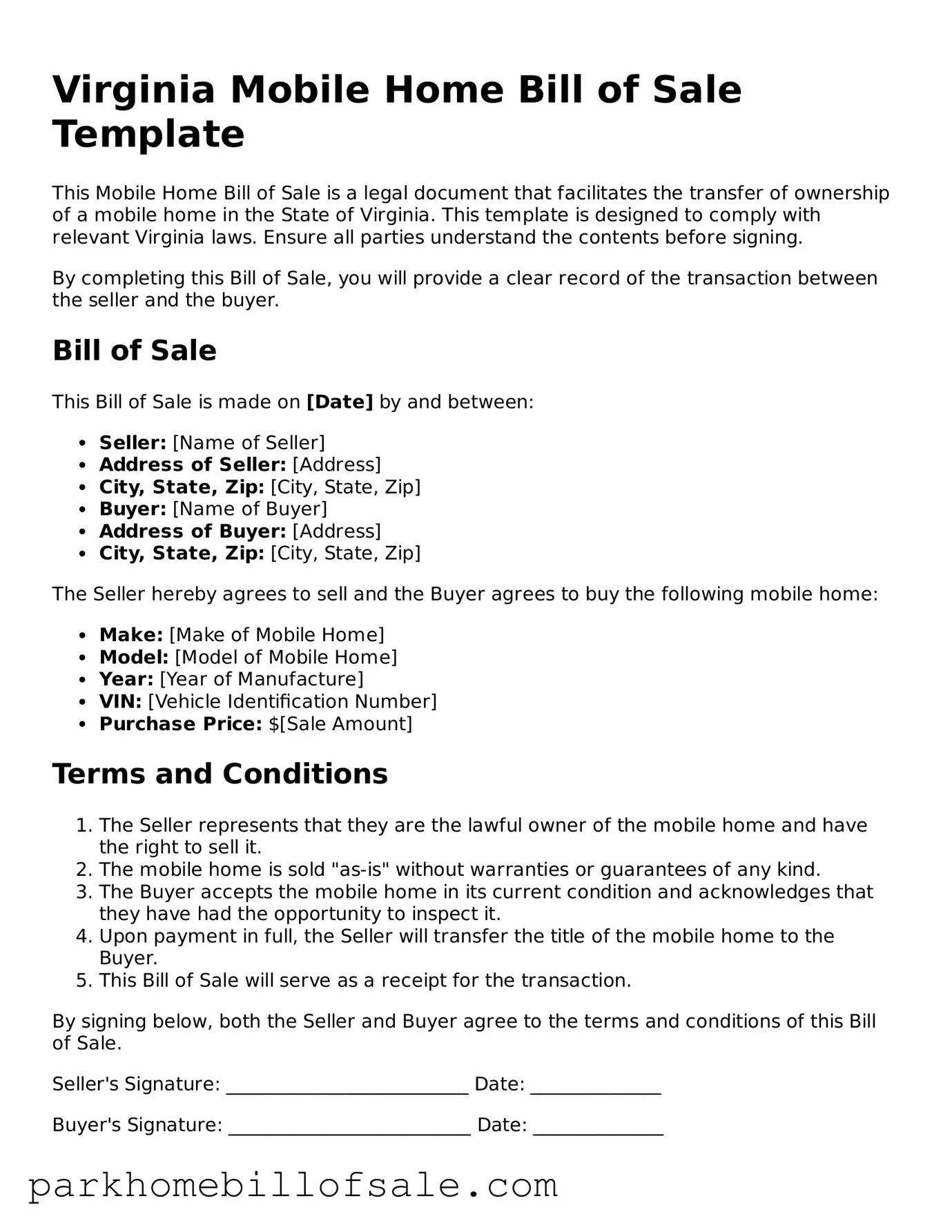Documents used along the form
When purchasing or selling a mobile home in Virginia, several important forms and documents may accompany the Mobile Home Bill of Sale. Each of these documents plays a crucial role in ensuring a smooth transaction and protecting the interests of both parties involved. Below is a list of commonly used forms that you may encounter.
- Title Transfer Form: This document is essential for officially transferring ownership of the mobile home from the seller to the buyer. It must be submitted to the Department of Motor Vehicles (DMV) to update the title records.
- Affidavit of Ownership: This form may be required to verify that the seller is the rightful owner of the mobile home. It helps prevent disputes regarding ownership and ensures that the sale is legitimate.
- Purchase Agreement: A written contract that outlines the terms and conditions of the sale, including the purchase price, payment method, and any contingencies. This agreement protects both the buyer and the seller.
- Inspection Report: An inspection report provides a detailed assessment of the mobile home’s condition. It can help buyers understand any potential issues and make informed decisions before finalizing the sale.
- Loan Documents: If the buyer is financing the purchase, loan documents will be necessary. These include the loan agreement, promissory note, and any related disclosures required by lenders.
- Insurance Policy: Proof of insurance may be required to protect the mobile home against damages. Buyers often need to show evidence of coverage before completing the sale.
- Tax Clearance Certificate: This document verifies that all property taxes related to the mobile home have been paid. It helps ensure that there are no outstanding tax liabilities that could affect the sale.
- Registration Application: After purchasing the mobile home, the new owner must complete a registration application with the DMV. This document registers the mobile home for use on public roads.
- Disclosure Statement: Sellers may be required to provide a disclosure statement detailing any known issues or defects with the mobile home. This transparency helps protect buyers from unexpected problems.
- Power of Attorney: If the seller cannot be present for the transaction, a power of attorney document allows another person to act on their behalf. This ensures that the sale can proceed smoothly.
Understanding these documents is vital for anyone involved in a mobile home transaction. Each form serves a specific purpose and contributes to a successful and legally sound sale. Taking the time to gather and review these documents can help both buyers and sellers feel more confident in their decisions.
